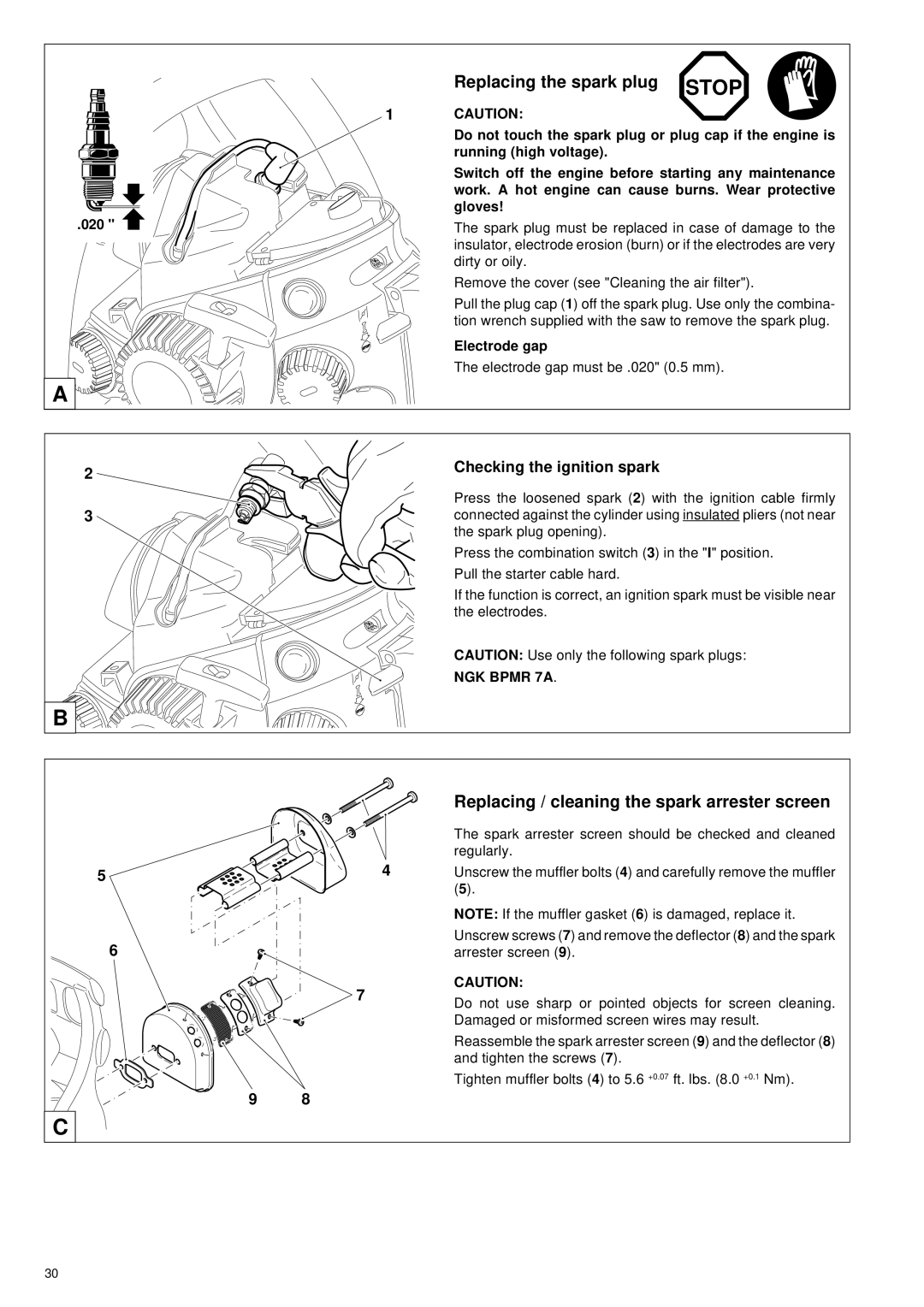
.020 " 
A
Replacing the spark plug STOP
1CAUTION:
Do not touch the spark plug or plug cap if the engine is running (high voltage).
Switch off the engine before starting any maintenance work. A hot engine can cause burns. Wear protective gloves!
The spark plug must be replaced in case of damage to the insulator, electrode erosion (burn) or if the electrodes are very dirty or oily.
Remove the cover (see "Cleaning the air filter").
Pull the plug cap (1) off the spark plug. Use only the combina- tion wrench supplied with the saw to remove the spark plug.
Electrode gap
The electrode gap must be .020" (0.5 mm).
2 ![]()
3
B
Checking the ignition spark
Press the loosened spark (2) with the ignition cable firmly connected against the cylinder using insulated pliers (not near the spark plug opening).
Press the combination switch (3) in the "I" position.
Pull the starter cable hard.
If the function is correct, an ignition spark must be visible near the electrodes.
CAUTION: Use only the following spark plugs:
NGK BPMR 7A.
|
| Replacing / cleaning the spark arrester screen |
|
| The spark arrester screen should be checked and cleaned |
|
| regularly. |
5 | 4 | Unscrew the muffler bolts (4) and carefully remove the muffler |
|
| (5). |
|
| NOTE: If the muffler gasket (6) is damaged, replace it. |
6 |
| Unscrew screws (7) and remove the deflector (8) and the spark |
| arrester screen (9). | |
| 7 | CAUTION: |
| Do not use sharp or pointed objects for screen cleaning. | |
|
| |
|
| Damaged or misformed screen wires may result. |
|
| Reassemble the spark arrester screen (9) and the deflector (8) |
|
| and tighten the screws (7). |
|
| Tighten muffler bolts (4) to 5.6 +0.07 ft. lbs. (8.0 +0.1 Nm). |
9 8
C
30
